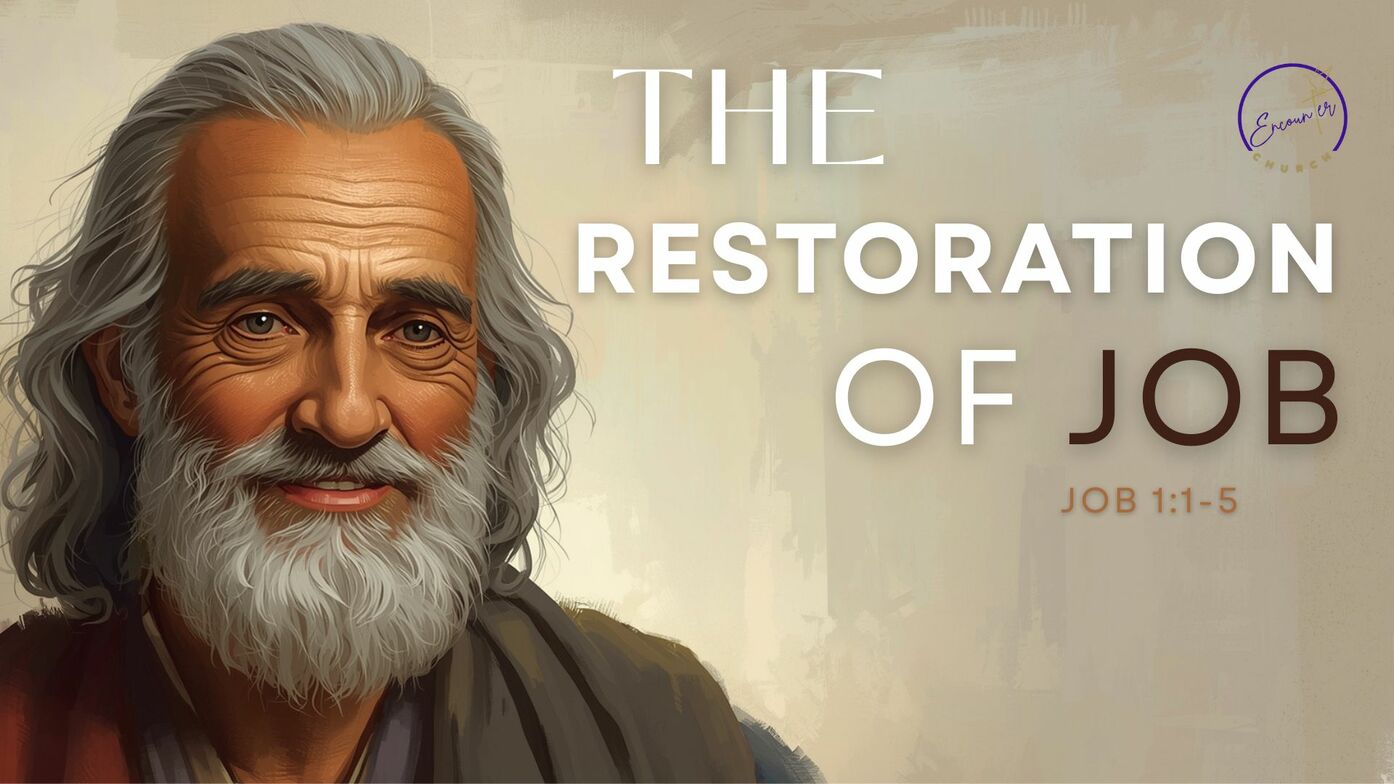Finding Restoration in the Midst of Suffering: Lessons from Job


In the game of life, there is no bench for incompetent players. We all have to play, we all have to deal with life, and it takes faith—not just for the extraordinary things, but for the ordinary challenges too.
Who Was Job and Why Does His Story Matter?
The book of Job introduces us to a man who was "blameless and upright, one who feared God and shunned evil." Job was incredibly blessed—he had seven sons, three daughters, 7,000 sheep, 3,000 camels, 500 yoke of oxen, 500 female donkeys, and a very large household. He was considered the wealthiest man in the East.
Job was so devoted to God that after his children's feasts, he would offer sacrifices for each of them, just in case they had "sinned and cursed God in their hearts." This wasn't an occasional practice—Job did this regularly.
Why Do Good People Suffer?
There's a common religious misconception that suffering equals sin. Many believe that if you're going through difficult times, you must have done something wrong. But Job's story challenges this false equation.
In the biblical narrative, God actually points Job out to Satan, saying, "Have you considered my servant Job? There is none like him on the earth, a blameless and upright man, one who fears God and shuns evil."
Why would God do this? Because when you need a victory, you don't put your weakest player on the field. God knew what He had in Job. He believed in Job more than Job believed in himself.
What Happens When Everything Is Taken Away?
Satan challenged God, suggesting that Job only served God because of his blessings. "Stretch out your hand and touch all that he has," Satan said, "and he will surely curse you to your face."
God allowed Satan to take everything from Job—his children, his wealth, his health—everything except his life. In a single day, Job lost it all.
How did Job respond? The Bible says he "arose, tore his robe, shaved his head, and fell to the ground and worshiped." He declared, "Naked I came from my mother's womb, and naked shall I return there. The Lord gave, and the Lord has taken away; blessed be the name of the Lord."
Even when his wife told him to "curse God and die," Job replied, "Shall we indeed accept good from God, and shall we not accept adversity?"
Is Suffering Always Punishment?
Job's three friends—Eliphaz, Bildad, and Zophar—all insisted that Job's suffering must be punishment for sin. They represented the religious mindset that equates suffering with sin.
But what if we changed our perspective? What if instead of seeing hardship as punishment, we saw it as preparation?
When parents discipline their children, it's not just to punish them—it's to prepare them for adulthood. Similarly, what if God allows difficulties not to punish us but to prepare us for something greater?
How Does God Respond to Our Questions?
Throughout his ordeal, Job asked many questions: Why do the righteous suffer when the wicked prosper? Why was I born if my life would be full of misery? Where is God in my suffering?
When God finally speaks to Job, He doesn't directly answer these questions. Instead, He asks Job a series of questions that highlight God's sovereignty and Job's limitations:
"Where were you when I laid the foundation of the earth?"
"Have you commanded the morning since your days began?"
"Can you bind the chains of Pleiades or loose the cords of Orion?"
God's response shifted Job's perspective from demanding answers to trusting God's wisdom. Sometimes we get so caught up in our questions that we lose sight of simply trusting God's wisdom in the moment.
What Is True Restoration?
Restoration isn't like two kids playing marbles, where one gives back exactly what was taken. When God restores, He doesn't come value to value—He always makes it better than it was before.
After Job humbled himself and prayed for his friends (the same ones who had misrepresented God to him), "the Lord restored Job's losses and gave him twice as much as he had before."
True restoration comes not from getting all the answers, but from a revelation of God's greatness and our humility to surrender. It's not about figuring everything out; it's about trusting God even when we don't understand.
How Can We Trust God in Difficult Times?
Sometimes our troubles begin because of a heavenly test, not because of personal sin. The enemy wants us to feel shame, to believe there's something fundamentally wrong with us that can never be fixed.
But Job's story teaches us that restoration comes when we:
- Recognize God's sovereignty
- Respond with worship even in pain
- Remain faithful despite circumstances
- Repent of speaking without understanding
- Release bitterness by praying for others
Life Application
This week, I challenge you to shift your perspective on your current struggles. Instead of asking "Why is this happening to me?" ask "How might God be preparing me through this?"
Consider these questions:
- What if your current difficulty isn't punishment but preparation for something greater?
- Are you giving the enemy glory by focusing on the negative, or are you trusting that God causes all things to work together for your good?
- In what areas of your life do you need to stop demanding answers and simply trust God's wisdom?
- How can you worship God in the midst of your pain?
Remember, restoration is here. God is not just trying to restore you to where you were—He's preparing you for something even better. Trust His process, even when you don't understand it.
